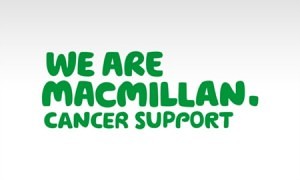Macmillan Cancer Support Issues Warning
A very interesting article from Macmillan Cancer Support about the longer term impact of cancer appeared on the BBC online news page this week. It flagged up the failure of the NHS to recognise and to subsequently provide appropriate services to patients. Most people who have experienced cancer as either a patient or as a relative, friend or partner of a sufferer will note the comments below with interest. My own awareness both professionally and personally of the need for more support has driven me to provide my own programme of interventions based on audited, evidence based practice around the psychological impact of cancer. I applaud Macmillan for their campaigning in this regard and for embracing the need for support around what is termed below, the ‘mental consequences of cancer’.
I will shortly be writing to medical colleagues in the settings I work in with a view to promoting my own work and the complementary cancer care service I offer. Contact me today for more information….
Hundreds of thousands of people in the UK face poor health or disability after being treated for cancer, says a report from Macmillan Cancer Support.
 The charity says more should be done to help the one in four affected by long-term problems such as chronic fatigue, pain, sexual and urinary difficulties.
The charity says more should be done to help the one in four affected by long-term problems such as chronic fatigue, pain, sexual and urinary difficulties.
These problems can occur when healthy cells are damaged during treatment.
Macmillan says patients should be offered continuing support after their treatment for cancer.
Although more people are surviving cancer than ever before, thanks to better detection and new treatments, Macmillan says there can be long-term physical and mental consequences to cancer treatment which often go untreated.
Using a combination of published data and expert opinion, they calculated that 25% of those who have been diagnosed with cancer at some point in their lives will be affected.
‘Doubled-edged sword’
Currently, they estimate that 350,000 people are living with sexual difficulties, 240,000 with mental health problems, 150,000 are affected by urinary problems such as incontinence, and 90,000 are experiencing problems like diarrhoea and bleeding as a result of having had cancer.
Certain cancer treatments also increase the risk of heart disease, osteoporosis or other cancers in survivors.
The report suggests that people who have had cancer are more likely to experience health problems than those without cancer.
Prof Jane Maher, chief medical officer of Macmillan Cancer Support, said progress was a double-edged sword.
“Put simply, the better we get at treating and curing cancer patients, the more people we will have living with the long-term effects of cancer and its treatment.
“Many of these problems can be managed using simple and inexpensive interventions by health professionals, while other more complex issues require specialist services.”
She said too many cancer survivors were suffering in silence.
Recovery package
A spokesman from NHS England said the report highlighted the future challenges the NHS had to meet.
“This is why we have launched a ‘Call to action’ as we need to engage the public and professions in a dialogue about how we create an NHS that meets people’s need in a personal way and is fit for the future rather than based on a 20th Century model.”
Ciarán Devane, chief executive of Macmillan Cancer Support, said the NHS had underestimated the severity of the issue.
“We are urging them to ensure that all cancer patients receive a ‘cancer recovery package’ at the end of their treatment offering ongoing support.”
He added that no-one should be left to face the long-term consequences of cancer alone.
Source : http://www.bbc.co.uk/news/health-23361873
Follow Russell Hoyles on Google+!
